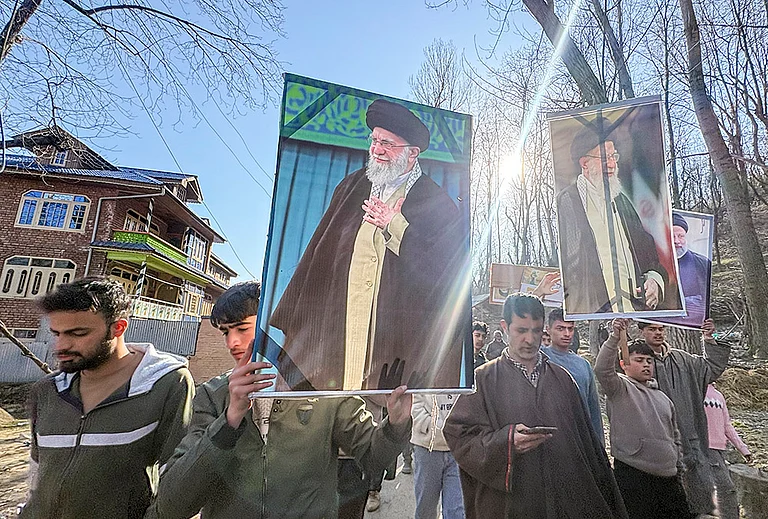A nationwide strike in India on July 9, 2025, affected some states but had little impact in major cities like Mumbai and Delhi. Trade union leaders have claimed that about 25 crore workers and farmers participated in the large-scale strike.
The bandh was called by 10 major national trade unions, supported by the Samyukta Kisan Morcha, a prominent farmers’ alliance, which led the anti-farm law protests in 2020-21.
Workers and unions took to the streets and demanded that the government withdraw its new labour codes, which were passed as overarching policies. Unions say the new labour codes significantly change the laws and regulations related to worker protection and job security. They call it central overreach and unfair to workers, especially as it significantly increases their legal hours of work.
The striking workers said they want to stop the government’s drive to privatise public sector outfits, so that more secure, long-term jobs can be created in the government sector. In some states like Bihar, local issues were raised as the reason for the strike.
Kolkata: Peaceful Protests Turn Into Unrest, Police Brutality
In Kolkata, while the day started with peaceful protests, the ‘Bharat Bandh’ scenario eventually flared up as several instances of unrest and police brutality came to light. Scuffles broke out between the supporters of Left parties and police as the former tried to enforce the Bharat Bandh.
Tension escalated when police stopped a procession led by CPI(M) leader and All India SFI General Secretary Srijan Bhattacharya at Ganguly Bagan and later detained 19 people for enforcing the strike.
All India SFI General Secretary, Srijan Bhattacharyya, said, “Our strike is against the labour code, unemployment, MGNREGA issues. Working hours are increasing while the salaries remain unchanged. This is a strike against the BJP’s policies, where the Mamata Banerjee-led TMC government’s police force is creating obstacles for us.”
“Since the morning, we were peacefully protesting, campaigning, and urging people to join the strike. Burning tyres is a common sight that we often come across in protests. However, police intervened when we were preparing for the same, and it led to a massive scuffle when male police officers manhandled women protesters. They repeatedly attacked us as well. They have arrested nineteen of us and we are being taken to Lalbazar Police Station”, Srijan added.
Sharing details of the incident, another left-wing student leader, Puja Mondal, said, “We gathered and were continuing with the rally when police suddenly attacked us. We were simply raising slogans and protesting peacefully. We were only putting the common people’s legitimate demands forward. They could not stand that. They arrested three women, including me. What surprised us was the fact that around 10-12 police officers came for each one of us.
When asked whether the Bandh has been successful in the other parts of the district, Debashis Dey, General Secretary, CITU, South 24 Parganas, said, “As part of the nationwide strike called by the trade unions, in our district, South 24 Parganas, a 100 per cent strike has been going on at several organised sectors, including Birla Jute, Budge Budge Caledonian Jute Mill, Century Plywood, Oscar Equipments and others. Shalimar and Dabur in the Sonarpur region are also taking part in the strike.”
“Workers of the unorganised sector, including the construction workers and the fishermen community across the Kakdwip, Namkhana, Patharpratima, Sagardwip region, have not joined work today. Farmers too have joined the strike as the Samyukta Kisan Morcha have extended support for the same”, he added.
Highlighting the plight of the women workers, All India Democratic Women’s Association’s (AIDWA) General Secretary of South 24 Parganas, Monalisa Sinha, said: “Today, on behalf of AIDWA, we are supporting the nationwide general strike called by the central trade unions. Working women are actively participating in the strike. This is happening at a time when―from facing the gender-based pay gap to becoming the victims of the rising cases of sexual harassment at workplaces―working women have been dealing with unprecedented oppression. That is exactly why, be it the women workers at the tea gardens or the women migrant workers, all are coming out in support of the strike.”
Kerala: Normal Life Comes To A Standstill
In Kerala, the bandh paralysed life. The strike resulted in the suspension of public transportation services, halting of commercial activities, and the closure of offices, schools, and colleges. Additionally, clashes occurred in multiple locations throughout the state.
At the Government Higher Secondary School in Nedungom, near Mattannur in northern Kannur district, dramatic scenes unfolded in the morning when 15 teachers arrived for duty using private vehicles. Interestingly, no students showed up at the school.
Strike workers accused the teachers of being RSS members intent on undermining the national strike. In response, they deflated the tires of seven cars that the teachers used to transport themselves to school. As tensions rose, the police had to arrange alternative transportation to send the teachers back to their homes safely.
At the Government Upper Primary School in Parappa, near Vellarikund in the Kasargod district, strike supporters locked the only teacher who turned up for duty from outside after she entered the staff room. The police had to reach the school to rescue her. At Mukkom in Kozhikode district, striking workers threatened to set fire to fish after dosing them with kerosene if the sale was not stopped immediately. The vendors soon stopped it.
The bandh nearly halted both private and public stage carriage and long-distance transportation, causing significant inconvenience for hundreds of passengers, including families with young children, who found themselves stranded at railway stations and airports across the state.
Activists from the Joint Strike Committee prevented the Kerala State Road Transport Corporation (KSRTC) from operating even minimal services. They also obstructed interstate bus services and freight movement, leading to confrontations with the police in various parts of the state.
Hundreds of union bank employees went on strike for the day, disrupting banking operations and commerce. Most hotels and restaurants, especially in Thiruvananthapuram, remained closed, as employees were unable to report for work, primarily due to a lack of transportation.
Online food ordering and delivery services too were affected, with most restaurants being offline. At the Central Railway Station in Thiruvananthapuram, long queues were witnessed at the railway canteen. Many people flocked to roadside eateries selling snacks and tea, as well as to canteens operated by various government departments, including the police.
Autorickshaws and taxis stayed off the road. The absence of public transportation and the unavailability of staff forced universities to postpone examinations. Attendance at public offices was noticeably low, even as the state government declared the bandh as a day of non-attendance.
The Secretariat in Thiruvananthapuram was nearly empty, with only senior secretaries in attendance. Cabinet ministers did not report to their offices in solidarity with the strike.
While strike supporters had exempted hospitals, milk distribution, medical stores, clinics, and other essential services from the protest, lack of transportation hindered many outpatients from attending their medical appointments. The tourism sector also came to a standstill due to insufficient staff and related services, although trade unions had exempted the hospitality industry from the strike.
Although the state is ruled by Left parties that had strongly backed the protest, the Pinarayi Vijayan government issued orders ahead of the nationwide strike, declaring that unauthorised absence by government employees and teachers participating in the strike will be treated as dies non—a loss of pay and service benefits for the day.
Kerala’s General Education Minister, V. Sivankutty, walked approximately two kilometres to his party office in Thiruvananthapuram to show solidarity with the strike, opting not to use any vehicles. Similarly, Opposition leader V. D. Satheesan of the Congress Parry also walked to the protest venue in Kochi to inaugurate the event.
Some groups believe that Kerala should eliminate the practice of hartals, especially considering how they are organised. One such campaign, ‘Say No To Hartal’, was founded in 2010 by Kochi resident Raju P. Nair. “We aim to unite the youth against this social evil (hartal), which is harming the interests of the state,” said Raju.
“The court banned bandhs 25 years ago, but they were replaced by hartals, which should ideally be voluntary. However, in our situation, they are enforced like bandhs. Just as political parties have the right to protest, individuals have the right not to participate in those protests. We do not oppose a call for a strike, but when participation is forced, it becomes a form of coercion. This goes against the basic principles of democracy,” explains human rights activist Advocate P. Antony Pouran.
Bihar: A Moderate Impact
The INDIA alliance had called for the bandh in the state to demand a halt to the ongoing intensive voter list revision by the Election Commission (EC). Leaders from various parties, including the Rashtriya Janata Dal (RJD), the Congress, Left parties, and the Vikassheel Insaan Party (VIP), participated in the protest.
The INDIA alliance organised a march against the Special Intensive Revision (SIR) being conducted by the EC on the voter list in Bihar. Leaders such as Rahul Gandhi and Tejashwi Yadav described it as “voter theft” and an “attempt to rob citizens of their voting rights”. The bandh received support from trade unions and several Muslim organisations.
In Patna and other regions, the protests involved breaking police barricades, burning tires, and blocking roads. Districts such as Gaya, Darbhanga, Jehanabad, Khagaria, Araria, and Nalanda witnessed road and railway blockade. Some trains were halted, private schools remained shut and incidents of road jams and arson were reported.
Rahul Gandhi, Leader of Opposition in the Lok Sabha, said: “In Maharashtra, the BJP won by cutting off the votes of the poor. It was voter theft. One crore new voters were added in Maharashtra, and wherever the vote count increased, the BJP won. All the new votes went to the BJP. We will not allow voter theft in Bihar.”
Tejashwi Yadav, former Deputy Chief Minister of Bihar, stated: “Today, the entire Bihar is shut. The EC has completely lost its credibility. There’s a massive plan underway to remove poor people's names from the voter list. First, they’ll remove names, then pensions, then ration cards. That’s why the Mahagathbandhan (Grand Alliance) called for the Bihar bandh. The EC has become a cell of a political party. It is confused. We will fight on every platform—be it the streets, Parliament, or the courts.”
Dipankar Bhattacharya, General Secretary of CPI(ML), said: “This bandh is for the rights of the people. Those in power want to influence the elections by removing voters’ names. The EC’s conspiracy will fail.” Purnia MP Pappu Yadav declared: “The EC is ruining people's lives. We won’t spare it. The Commission has destroyed the lives of the poor across the country.” Samrat Choudhary, Bihar Deputy CM and BJP leader, mocked Rahul Gandhi, saying: “Rahul Gandhi has come to Bihar for a picnic. He has nothing to do with Bihar’s issues. These are picnic leaders. He must have seen Bihar’s progress—perhaps at the airport, which has developed significantly.”
K. C. Tyagi, senior JD(U) leader, reacted to Rahul Gandhi’s statements: “Just as the Congress was defeated in Maharashtra, they will face an even worse fate in Bihar. The Congress has lost its public support. The RJD alliance is worried about its impending decline.”
Kashmir: Authorities Disallow Bharat Bandh Protest
Authorities have disallowed protests in connection with the Bharat Bandh call. Mohamad Yousuf Tarigami, central committee member of the Communist Party of India-Marxist (CPI (M)) and MLA from Kulgam, said that the authorities didn’t allow the protest in Srinagar that was to be taken out as part of the Bharat Bandh call. He said that the denial came even as they were earlier been permitted to take out a peaceful protest in Srinagar city.
A peaceful protest was planned in Srinagar city at Sher-e-Kashmir Park, said Tarigami. “The administration abruptly revoked the permission earlier granted to us. The protest was meant to oppose anti-working class and anti-farmer policies being pursued by the government. This arbitrary action amounts to a blatant suppression of democratic rights and a deliberate attempt to silence the voices of the working class and farmers,” he said in a post on X.
So, there was no major impact in Kashmir and the government offices functioned normally, said Employees Joint Action Committee (EJAC) President Wajahat Durrani who, however, added that the employees in Kashmir are frustrated with the policies that seek to disinvest the public sector undertakings (PSUs) and sell them to private firms. “The employees protested here yesterday against the proposed plans of the government to privatise the Jammu and Kashmir Tourism Development Corporation (JKTDC),” he said.
- Reporting by Jheelum Basu in Kolkata, K A Shaji in Kerala, Md Asghar Khan in Bihar and Ishfaq Naseem in J&K.


























